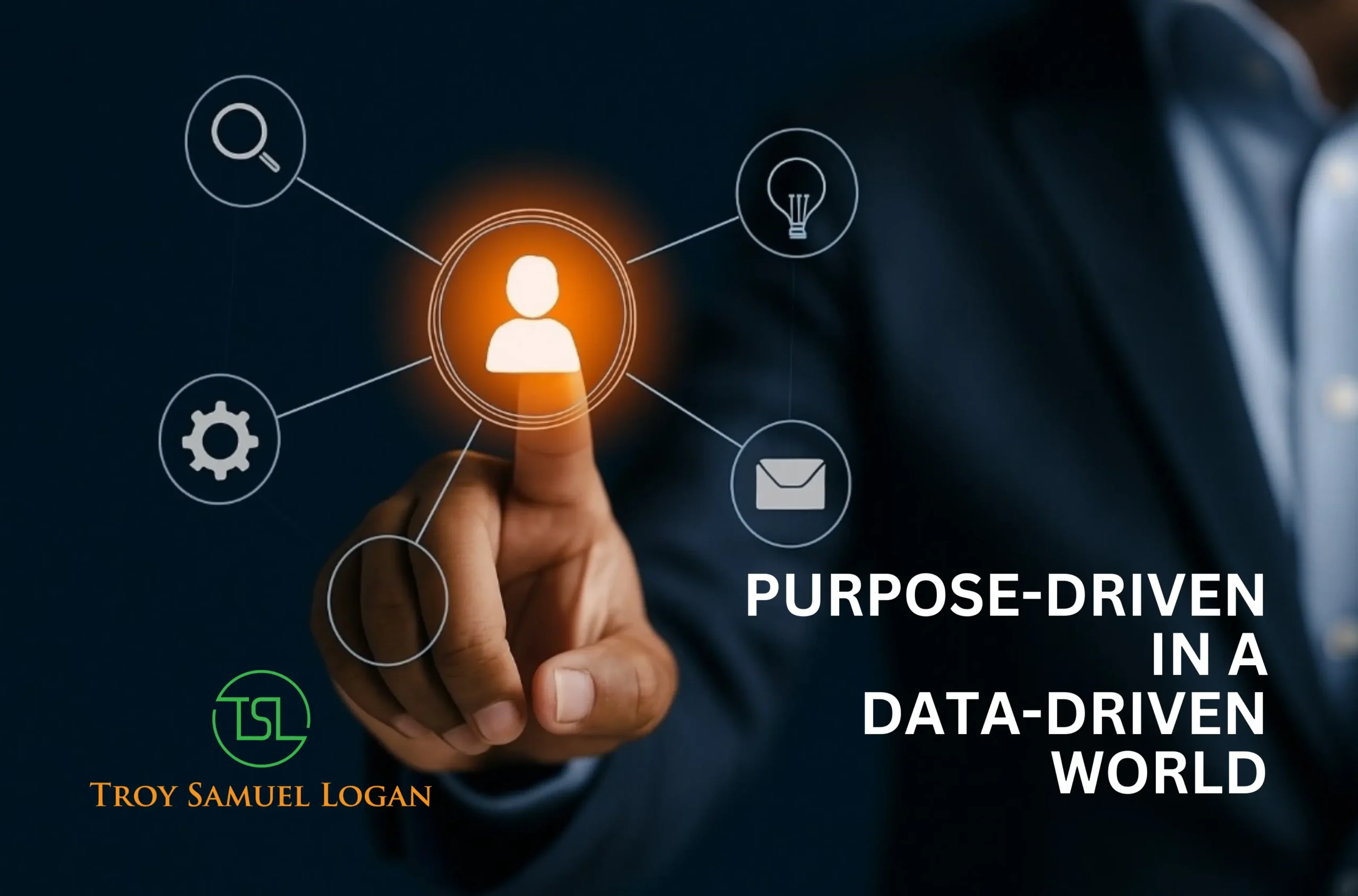I never wore a hoodie to work. I didn’t spend nights coding or scaling a startup in Silicon Valley. But I’ve always been close to tech — even if I wasn’t “in” it.
For years, I consulted on housing, youth development, digital systems, and data strategy across nonprofits, corporate programs, and government sectors. I noticed a pattern early: those who succeeded didn’t just follow trends — they paid attention to evidence and aligned their work with purpose.
Today, with AI reshaping how we live and work, that truth matters more than ever.
We’re Not Lacking Data — We’re Lacking Direction
By 2025, nearly half of all workplace skills will need to be updated, according to the World Economic Forum. Yet, only a third of employees say their work feels meaningful (PwC). In other words, we’re accelerating change, but not giving people a reason to care about where we’re going.
Too many organizations are racing toward “innovation” without asking the deeper question: What are we innovating for?
AI Can’t Replace Purpose
AI is powerful. It can automate workflows, personalize services, and even generate content. But here’s the thing: AI doesn’t know who your community is. It doesn’t care why your mission matters.
If we treat AI like a plug-and-play replacement for human intention, we’ll scale efficiency and lose meaning. And that’s not innovation — that’s infrastructure without identity.
Even Satya Nadella of Microsoft put it best:
“AI must be grounded in human dignity and agency.”
A Personal Truth: Leadership Without a Tech Title
I’ve sat on boards, designed programs, and supported governments without ever calling myself a technologist.
But I always paid attention to how systems impacted people.
That perspective made me a better leader. Not because I knew every tech trend — but because I knew how to ask the right questions:
– Who benefits from this system?
– Who gets left behind?
– What does success really look like?
I didn’t need a badge to lead tech conversations. I needed clarity, evidence, and purpose.
Let’s Address the Critics
Some say purpose is a soft concept — one that slows down innovation, complicates decision-making, and belongs in a mission statement, not the innovation lab.
I get it. Efficiency is seductive. The market rewards speed.
But when algorithms replicate bias, when engagement drops in mission-driven work, when trust in institutions declines — it’s not because we lack tools. It’s because we lack intention.
As Dr. Joy Buolamwini and Dr. Ruha Benjamin both highlight, designing without justice creates tools that harm more than they help.
So no — purpose isn’t the enemy of progress. It’s what keeps progress ethical, inclusive, and human.
Data Without Dignity is Dangerous
Organizations that pursue digital transformation without grounding in values often lose the very communities they claim to serve.
In the nonprofit world, only 28% currently use AI tools (TechSoup). In government, aging systems clash with rising expectations. In business, the race to automate is leaving workers feeling devalued and disengaged.
Meanwhile, Deloitte research shows that companies with high purpose alignment outperform the market by 5–7% annually.
Purpose isn’t just a feel-good idea. It’s a competitive advantage.
So What Now?
If you’re leading a team, building a program, or transforming a system, here’s my challenge to you:
Don’t start with the technology. Start with the people.
– What do they need?
– What do they value?
– How can technology extend — not erase — their agency?
Because in a data-driven world, the most radical thing you can do is lead with purpose.
And that’s not softness. That’s strength.

